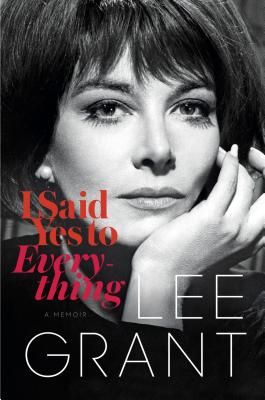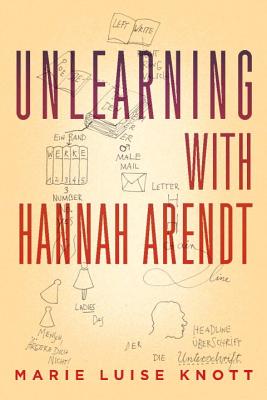Born Lyova Haskell Rosenthal in New York City, actress Lee Grant spent her youth accumulating more experiences than most people have in a lifetime: from student at the famed Neighborhood Playhouse to member of the legendary Actors Studio; from celebrated Broadway star to Vogue “It Girl.” At age twenty-four, she was nominated for an Academy Award for Detective Story, and a year later found herself married and a mother for the first time, her career on the rise.
And then she lost it all.
Her name landed on the Hollywood blacklist, her offers for film and television roles ground to a halt, and her marriage fell apart.
Finding reserves of strength she didn’t know she had, Grant took action against anti-Communist witch hunts in the arts. She threw herself into work, accepting every theater or teaching job that came her way. She met a man ten years her junior and began a wild, liberating fling that she never expected would last a lifetime.
And after twelve years of fighting the blacklist, she was finally exonerated. With courage and style, Grant rebuilt her life on her own terms: first stop, a starring role on Peyton Place, and then leads in Valley of the Dolls, In the Heat of the Night, and Shampoo, for which she won her first Oscar.
Set amid the New York theater scene of the fifties and the star-studded parties of Malibu in the seventies, I Said Yes to Everything evokes a world of political passion and movie-star glamour. Grant tells endlessly delightful tales of costars and friends such as Warren Beatty, Elizabeth Taylor, Grace Kelly, and Sidney Poitier, and writes with the verve and candor befitting such a seductive and beloved star.
And then she lost it all.
Her name landed on the Hollywood blacklist, her offers for film and television roles ground to a halt, and her marriage fell apart.
Finding reserves of strength she didn’t know she had, Grant took action against anti-Communist witch hunts in the arts. She threw herself into work, accepting every theater or teaching job that came her way. She met a man ten years her junior and began a wild, liberating fling that she never expected would last a lifetime.
And after twelve years of fighting the blacklist, she was finally exonerated. With courage and style, Grant rebuilt her life on her own terms: first stop, a starring role on Peyton Place, and then leads in Valley of the Dolls, In the Heat of the Night, and Shampoo, for which she won her first Oscar.
Set amid the New York theater scene of the fifties and the star-studded parties of Malibu in the seventies, I Said Yes to Everything evokes a world of political passion and movie-star glamour. Grant tells endlessly delightful tales of costars and friends such as Warren Beatty, Elizabeth Taylor, Grace Kelly, and Sidney Poitier, and writes with the verve and candor befitting such a seductive and beloved star.
Michelle was a young single mother when she was kidnapped by a local school bus driver named Ariel Castro. For more than a decade afterward, she endured unimaginable torture at the hand of her abductor. In 2003 Amanda Berry joined her in captivity, followed by Gina DeJesus in 2004. Their escape on May 6, 2013, made headlines around the world.
Barely out of her own tumultuous childhood, Michelle was estranged from her family and fighting for custody of her young son when she disappeared. Local police believed she had run away, so they removed her from the missing persons lists fifteen months after she vanished. Castro tormented her with these facts, reminding her that no one was looking for her, that the outside world had forgotten
her. But Michelle would not be broken.
In Finding Me, Michelle will reveal the heartbreaking details of her story, including the thoughts and prayers that helped her find courage to endure her unimaginable circumstances and now build a life worth living. By sharing both her past and her efforts to create a future, Michelle becomes a voice for the voiceless and a powerful symbol of hope for the thousands of children and young adults who go missing every year.
One man's battle to save hundreds of jobs by taking on China and demonstrating the greatness of American business.
With over $500 million a year in sales, the Bassett Furniture Company was once the world's biggest wood furniture manufacturer. Run by the same powerful Virginia family for three generations, it was also the center of life in Bassett, VA-an unincorporated town that existed solely for the people who built the company's products. But beginning in the 1980s, the Bassett company suffered from an influx of cheap Chinese furniture as the first waves of Asian competition hit, and ultimately was forced to send its production offshore to Asia.
Only one man fought back. That man is John Bassett III, a descendant of the Bassetts who is now chairman of Vaughan-Bassett Furniture Co, which employs more than 700 Virginians and has sales of over $90 million. In Factory Man, Beth Macy brings to life Bassett's deeply personal furniture and family story. As she shows how he uses legal maneuvers, factory efficiencies, and sheer grit, cunning, and will to save hundreds of jobs, she also discovers the hidden and shocking truth about industry and America.
With over $500 million a year in sales, the Bassett Furniture Company was once the world's biggest wood furniture manufacturer. Run by the same powerful Virginia family for three generations, it was also the center of life in Bassett, VA-an unincorporated town that existed solely for the people who built the company's products. But beginning in the 1980s, the Bassett company suffered from an influx of cheap Chinese furniture as the first waves of Asian competition hit, and ultimately was forced to send its production offshore to Asia.
Only one man fought back. That man is John Bassett III, a descendant of the Bassetts who is now chairman of Vaughan-Bassett Furniture Co, which employs more than 700 Virginians and has sales of over $90 million. In Factory Man, Beth Macy brings to life Bassett's deeply personal furniture and family story. As she shows how he uses legal maneuvers, factory efficiencies, and sheer grit, cunning, and will to save hundreds of jobs, she also discovers the hidden and shocking truth about industry and America.
Short-listed for the Tractatus Essay Prize, an examination of the innovative strategies Arendt used to achieve intellectual freedom
After observing the trial of Adolf Eichmann, Hannah Arendt articulated her controversial concept of the “banality of evil,” thereby posing one of the most chilling and divisive moral questions of the twentieth century: How can genocidal acts be carried out by non-psychopathic people? By revealing the full complexity of the trial with reasoning that defied prevailing attitudes, Arendt became the object of severe and often slanderous criticism, losing some of her closest friends as well as being labeled a “self-hating Jew.” And while her theories have continued to draw innumerable opponents, Arendt’s work remains an invaluable resource for those seeking greater insight into the more problematic aspects of human nature.
Anchoring its discussion in the themes of translation, forgiveness, dramatization, and even laughter, Unlearning with Hannah Arendt explores the ways in which this iconic political theorist “unlearned” recognized trends and patterns—both philosophical and cultural—to establish a theoretical praxis all her own. Through an analysis of the social context and intellectual influences—Karl Jaspers, Walter Benjamin, and Martin Heidegger—that helped shape Arendt’s process, Knott has formed a historically engaged and incisive contribution to Arendt’s legacy.
After observing the trial of Adolf Eichmann, Hannah Arendt articulated her controversial concept of the “banality of evil,” thereby posing one of the most chilling and divisive moral questions of the twentieth century: How can genocidal acts be carried out by non-psychopathic people? By revealing the full complexity of the trial with reasoning that defied prevailing attitudes, Arendt became the object of severe and often slanderous criticism, losing some of her closest friends as well as being labeled a “self-hating Jew.” And while her theories have continued to draw innumerable opponents, Arendt’s work remains an invaluable resource for those seeking greater insight into the more problematic aspects of human nature.
Anchoring its discussion in the themes of translation, forgiveness, dramatization, and even laughter, Unlearning with Hannah Arendt explores the ways in which this iconic political theorist “unlearned” recognized trends and patterns—both philosophical and cultural—to establish a theoretical praxis all her own. Through an analysis of the social context and intellectual influences—Karl Jaspers, Walter Benjamin, and Martin Heidegger—that helped shape Arendt’s process, Knott has formed a historically engaged and incisive contribution to Arendt’s legacy.




No comments:
Post a Comment